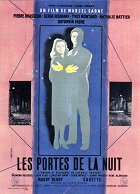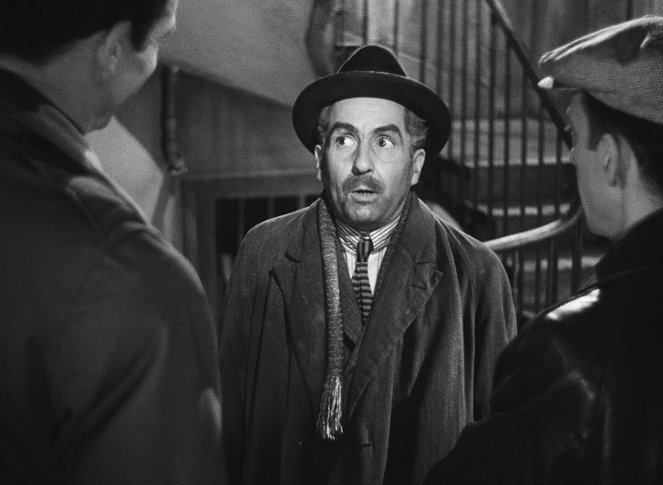Ohjaus:
Marcel CarnéKäsikirjoitus:
Jacques PrévertKuvaus:
Philippe AgostiniSävellys:
Joseph KosmaNäyttelijät:
Pierre Brasseur, Serge Reggiani, Yves Montand, Nathalie Nattier, Raymond Bussières, Sylvia Bataille, Dany Robin, Jacques Perrin, Saturnin Fabre (lisää)Juonikuvaukset(1)
Paris, after the war. Jean meets a friend from the Resistance in a black market bar - and also meets a woman, Malou, and falls madly in love with her. Jean knows her brother and her father and pulls no punches in denouncing their collaboration with the Germans. To get even, the father and brother tell Malou's husband about her affair with Jean. In trying to kill Jean, the irate husband winds up killing Malou. (jakelijan virallinen teksti)
(lisää)Arvostelut (1)
One possible definition of political realism could be that it is a somewhat idealized reality free from disturbing elements, accompanied by mood music and poetic stylistic dialogues. Perhaps the closest example of it in modern French cinema was approached by Jean-Pierre Jeunet in his popular and critically acclaimed Amelie. Poetic realism, therefore, somewhat magically "enhances" the present and enchants the viewer. However, Gates of the Night had the opposite effect on the audience when it premiered. Although Carné retouched the post-war face of Paris with his imagery and dialogues, it was not enough for contemporary viewers who wanted to see different content and hear stories full of heroism and exemplary punishment of traitors. Carné's portrayal of swindlers and cunning turncoats brought unwanted tones into the discussion of that time and showed more than the French were willing to tolerate at the time. For the director, it was an unpleasant failure, and the film quickly disappeared from movie theaters. Today, it is a matter for film clubs and late-night broadcasts on TV art channels. However, it can offer viewers an impressive example of magical realism in the European concept. Overall impression: 75%.
()

